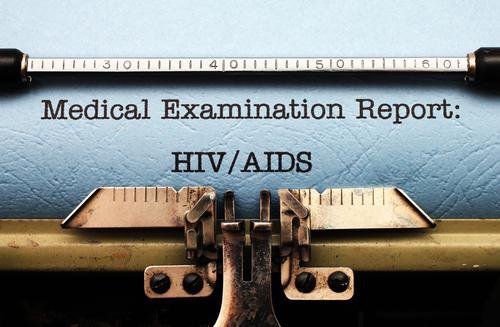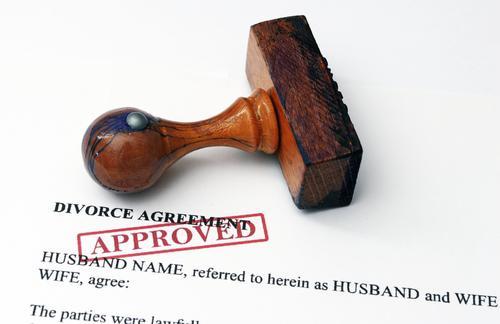Recent Blog Posts
Crime Victims Bill of Rights Approved by Illinois Voters 11/11
 The Crime Victims Bill of Rights is a recently approved amendment to the Illinois Constitution that guarantees that victims and their families have the right to pursue an enforceable court action when their rights are violated. Also known as Marsy's Law, the new law seeks to soften the blow of the some of the long-term impacts facing victims and their families when proper access to the criminal justice system is denied and/or improperly executed by the courts and law enforcement.
The Crime Victims Bill of Rights is a recently approved amendment to the Illinois Constitution that guarantees that victims and their families have the right to pursue an enforceable court action when their rights are violated. Also known as Marsy's Law, the new law seeks to soften the blow of the some of the long-term impacts facing victims and their families when proper access to the criminal justice system is denied and/or improperly executed by the courts and law enforcement.
The Need for A Crime Victims' Bill of Rights
Marsy's Law provides enhanced protections and rights for victims and their families. Marsy's Law was named after Marsy Ann Nicholas, a Santa Barbara student who was stalked and then murdered by her ex-boyfriend in 1983. A week after Marsy's death, her family was confronted by her murderer at a local area grocery store. At this time they had not been given notice that Marsy's killer had been released from jail on bail. This confrontation caused additional pain and suffering for an already grieving family, and highlighted the need for a victim's family to receive relevant information from the courts and law enforcement agencies. In 2008, California passed a Marsy's Law, and now Illinois may be following suit.
Illinois Recoups Millions in White Collar Crime Sales Tax Evasion Prosecutions
 The Illinois Department of Revenue (IDOR) just announced a recent victory in its white collar crimes investigations. An assortment of Chicago-area gas stations have been charged and successfully prosecuted for illegally profiting from over $1 million worth of fraudulent sales tax evasion activities. The operation has been spearheaded by Attorney General Lisa Madigan, and has already led to the recovery of over $100 million in funds that can now be used for the benefit of the state of Illinois. These lost tax profits were hidden by owners who under-reported revenues that they received in order to avoid having to pay additional taxes based on their original revenue amounts for gas sales. The funds were recouped via IDOR audits of the gas station owners, and subsequent prosecutions by the Attorney General. Fifty gas station owners in Illinois have been charged so far as part of these ongoing investigations, and 40 defendants have already been convicted, some even imprisoned.
The Illinois Department of Revenue (IDOR) just announced a recent victory in its white collar crimes investigations. An assortment of Chicago-area gas stations have been charged and successfully prosecuted for illegally profiting from over $1 million worth of fraudulent sales tax evasion activities. The operation has been spearheaded by Attorney General Lisa Madigan, and has already led to the recovery of over $100 million in funds that can now be used for the benefit of the state of Illinois. These lost tax profits were hidden by owners who under-reported revenues that they received in order to avoid having to pay additional taxes based on their original revenue amounts for gas sales. The funds were recouped via IDOR audits of the gas station owners, and subsequent prosecutions by the Attorney General. Fifty gas station owners in Illinois have been charged so far as part of these ongoing investigations, and 40 defendants have already been convicted, some even imprisoned.
Illinois House Judiciary Committee To Review Use of Police Body Cams
 Members of the Illinois Legislature recently met to discuss how the newly proposed eavesdropping laws would affect police officers' use of body cams. Body cams are cameras attached to police officers, which can be used to record interactions with potential suspects and the general public. The use of body cameras by law enforcement professionals across the nation has increased in recent years, as has the criticism of such practices. Because Illinois' past eavesdropping law was struck down by the Illinois Supreme Court earlier this year, there has been careful and intensive reviews of all aspects of the proposed legislation, which could soon set new parameters regarding the use of body cams by Illinois police officers.
Members of the Illinois Legislature recently met to discuss how the newly proposed eavesdropping laws would affect police officers' use of body cams. Body cams are cameras attached to police officers, which can be used to record interactions with potential suspects and the general public. The use of body cameras by law enforcement professionals across the nation has increased in recent years, as has the criticism of such practices. Because Illinois' past eavesdropping law was struck down by the Illinois Supreme Court earlier this year, there has been careful and intensive reviews of all aspects of the proposed legislation, which could soon set new parameters regarding the use of body cams by Illinois police officers.
The Proposed Eavesdropping Law
The Illinois Supreme Court issued two opinions on March 20th, 2014 which served to effectively strike down Illinois' eavesdropping law. This law criminalized the recording of conversations without all of the involved parties' consent, and the Illinois Supreme Court ruled that such a law was unconstitutional and also overly broad in nature. Because this law was stuck down and has not yet been replaced with a new law, people are free to tape both public and private conversations without fear of legal retribution when the involved parties' consent has not be obtained. As a result of this ruling, the Illinois General Assembly has been scrambling to create a new eavesdrop law capable of surviving review by the Illinois Supreme Court. This process has not been easy and has required careful consideration of an assortment of constitutional factors in order to ensure that the new eavesdropping law does not have the same fate as the previous law.
Understanding Parental Kidnapping Laws
 A terrible divorce can have an assortment of unintended consequences. Specifically, the parent of a child may make the brash decision to remove the child from the home or even from the state or country before or after an adverse custody decision is handed down by a court. When this occurs, a variety of laws exist in order to punish the kidnapping parent, and also to ensure that the kidnapped child is returned to his or her rightful guardian. The fact that parental kidnapping laws exist at the local, state, federal, and international level illustrates the real complications that can result from parental kidnapping and other related child custody disputes.
A terrible divorce can have an assortment of unintended consequences. Specifically, the parent of a child may make the brash decision to remove the child from the home or even from the state or country before or after an adverse custody decision is handed down by a court. When this occurs, a variety of laws exist in order to punish the kidnapping parent, and also to ensure that the kidnapped child is returned to his or her rightful guardian. The fact that parental kidnapping laws exist at the local, state, federal, and international level illustrates the real complications that can result from parental kidnapping and other related child custody disputes.
The Federal and International Laws Regarding Parental Kidnapping
Parental kidnapping can occur at the international level, when each parent is a citizen of a different country. As a result, international law has provided a variety of legal protections and conventions. Under the Hague Convention on the Civil Aspects of International Child Abduction, in parental kidnapping disputes before the U.S. courts, such courts must order the return of a child to the country of his or her habitual residence when it has been found that the child in question was wrongfully detained and/or removed to the United States. Parental kidnapping issues can arise in cases where one parent is a U.S. citizen and the other parent is a foreign national, who decides to return to his or her home country with the child and without the other parent's consent. Federal law provides that when a parent removes or attempts to remove a child out of the U.S. with the intent to obstruct the other parent's lawful exercise of parental rights, the removing parent could be subjected to a felony conviction punishable by no more than three years in prison. Furthermore, the Parental Kidnapping Prevention Act (PKPA) was enacted in order to mitigate the complicated jurisdictional conflicts that can arise in child custody cases, such as parental kidnappings, by facilitating mutual cooperation amongst the various state courts.
Child Surrogacy Laws in Illinois
 Surrogacy agreements are legal agreements signed by a woman who agrees to carry a child (the “surrogate”) on the behalf of another person or couple (the “intended parents”). In the United States, child surrogacy is a common practice, and over 2,000 surrogate babies will be born in the U.S. this year. The confusions about what is an enforceable or unenforceable surrogacy agreement are typically complicated by the diverse range of opinions about surrogacy. These ranging opinions are often illustrated through the different state laws that govern and address surrogacy agreements.
Surrogacy agreements are legal agreements signed by a woman who agrees to carry a child (the “surrogate”) on the behalf of another person or couple (the “intended parents”). In the United States, child surrogacy is a common practice, and over 2,000 surrogate babies will be born in the U.S. this year. The confusions about what is an enforceable or unenforceable surrogacy agreement are typically complicated by the diverse range of opinions about surrogacy. These ranging opinions are often illustrated through the different state laws that govern and address surrogacy agreements.
A recent case in the news about a Connecticut surrogate illustrates how the different state laws can affect whether a surrogacy agreement is enforceable or unenforceable. In this case, a Connecticut woman was a surrogate to a child that was created with the intended father's sperm and an anonymous donor's egg. During a routine ultrasound when she was five months pregnant, it was discovered that the child she was carrying had heart defects, a cleft palate, and a brain cyst. The intended parents requested that the surrogate abort the child, and even offered $10,000 as incentive. Instead of terminating the pregnancy, the woman left Connecticut, where surrogacy agreements are enforceable, and moved to Michigan. She did this because in Michigan, surrogacy agreements are not enforceable. After giving birth to the child in Michigan, the surrogate was listed on the child's birth certificate as the child's mother, even though she was not genetically connected to the child.
Chicago Mayor Rahm Emanuel Calls for Marijuana Decriminalization
 Last year, Illinois became the 20th U.S. state to legalize medical marijuana use. Now, if Chicago Mayor Rahm Emanuel has his way, the state will join California and Colorado in decriminalizing the use of marijuana for non-medicinal purposes. During an appearance before the Illinois General Assembly, Emanuel testified for over an hour about the need and benefits of lifting Illinois' non-medicinal marijuana use ban. Currently in Illinois the laws regarding marijuana possession are as follows:
Last year, Illinois became the 20th U.S. state to legalize medical marijuana use. Now, if Chicago Mayor Rahm Emanuel has his way, the state will join California and Colorado in decriminalizing the use of marijuana for non-medicinal purposes. During an appearance before the Illinois General Assembly, Emanuel testified for over an hour about the need and benefits of lifting Illinois' non-medicinal marijuana use ban. Currently in Illinois the laws regarding marijuana possession are as follows:
-
It is a Class C misdemeanor to possess 2.5 grams or less of a substance containing marijuana;
-
It is a Class B misdemeanor to carry any substance with more than 2.5 grams but no more than 10 grams of a substance that contains marijuana;
Illinois' Safe Haven Laws and Child Abandonment
 Safe Haven laws often go unnoticed. However, every now and then in the news a case pops up about a newborn baby abandoned by a parent, and subsequently discovered by a citizen. Recently, a 17-year-old mother from Jacksonville, Illinois was arrested for abandoning her newborn infant in a trash bin. Safe haven laws were created to provide a safe alternative to child abandonment that does not make a criminal act to abandon a child and allows for the baby to be legally adopted.
Safe Haven laws often go unnoticed. However, every now and then in the news a case pops up about a newborn baby abandoned by a parent, and subsequently discovered by a citizen. Recently, a 17-year-old mother from Jacksonville, Illinois was arrested for abandoning her newborn infant in a trash bin. Safe haven laws were created to provide a safe alternative to child abandonment that does not make a criminal act to abandon a child and allows for the baby to be legally adopted.
Under Illinois safe haven law, the Abandoned Newborn Infant Protection Act, a parent can anonymously and safely turn over their unwanted newborn baby to the police, medical professionals, firefighters and others, without any questions being asked. Since the creation of the law in 2001, the law has been used 98 times, but 72 illegal newborn abandonments have occurred in the state since the Illinois' safe haven law was implemented. In these cases, 35 of the children survived, but sadly 37 of these illegally abandoned children died before and after discovery.
Illinois Cases Highlight the Debate over HIV-Specific Criminal Laws
 Here in Illinois, two cases have been in the media that have put a spotlight on Illinois law regarding the criminal transmission of HIV. Under Illinois law, a person who has HIV and engages in unprotected sex without first informing their partner that they are HIV-positive can be found guilty of committing a felony. Under this law, transmission of the HIV/AIDs disease does not have to occur for the HIV-positive partner to be found guilty of a felony. However, when prosecutors charge someone with breaking HIV-specific criminal laws, they must provide proof that the person who is HIV-positive intended to expose that person to HIV. One of the men now being tried under this law is subject to the old rules, which did not require that the HIV-positive transmitter actually intended to transmit the disease when engaging in intercourse or other activities.
Here in Illinois, two cases have been in the media that have put a spotlight on Illinois law regarding the criminal transmission of HIV. Under Illinois law, a person who has HIV and engages in unprotected sex without first informing their partner that they are HIV-positive can be found guilty of committing a felony. Under this law, transmission of the HIV/AIDs disease does not have to occur for the HIV-positive partner to be found guilty of a felony. However, when prosecutors charge someone with breaking HIV-specific criminal laws, they must provide proof that the person who is HIV-positive intended to expose that person to HIV. One of the men now being tried under this law is subject to the old rules, which did not require that the HIV-positive transmitter actually intended to transmit the disease when engaging in intercourse or other activities.
Understanding Illinois' Consumer Fraud and Deceptive Business Practices Act
 Sadly, Illinois is a state where fraud and deceptive business practices are a regular occurrence. Every day, the news media reports on new acts of fraud involving a wide range of actors including petty thieves, health care workers ,and even some of the most successful politicians and business people in the state. The Illinois Consumer Fraud and Deceptive Business Practices Act (CFA) is the Illinois state statute that provides protections against fraud, deceptive business practices, and other white collar crimes. Claims of fraud can be brought in civil courts by private individuals who claim harm as a result of another's fraudulent conduct/activities. Furthermore, criminal fraud claims can brought by the Illinois Attorney General's Office.
Sadly, Illinois is a state where fraud and deceptive business practices are a regular occurrence. Every day, the news media reports on new acts of fraud involving a wide range of actors including petty thieves, health care workers ,and even some of the most successful politicians and business people in the state. The Illinois Consumer Fraud and Deceptive Business Practices Act (CFA) is the Illinois state statute that provides protections against fraud, deceptive business practices, and other white collar crimes. Claims of fraud can be brought in civil courts by private individuals who claim harm as a result of another's fraudulent conduct/activities. Furthermore, criminal fraud claims can brought by the Illinois Attorney General's Office.
Fraud is the most common type of white collar crime. However, a fraud claim, depending on the context and court within which the claim is brought, can have different elements that must be proven in order to sustain a claim that an illegal fraud was perpetrated. Under common law, in order to prove that illegal fraud took place, it must be proven that:
Dissolution of Marriage in Illinois
 Going through a divorce can be a stressful and difficult time in life. The situation can become even more intense when trying to understand the different legal rules and statutes that govern divorce proceedings.
Going through a divorce can be a stressful and difficult time in life. The situation can become even more intense when trying to understand the different legal rules and statutes that govern divorce proceedings.
Here in Illinois, a divorce is legally referred to as the dissolution of marriage. Couples can either dissolve a divorce via the formal dissolution process or through the Illinois Simplified Joint Dissolution process. Both processes make filing for divorce a relatively painless procedure, especially with the assistance of an experienced family law attorney. Below are a few factors and procedural requirements that you should be aware of if you are ready to file for divorce in Illinois.
Basic Divorce Filing Procedure










